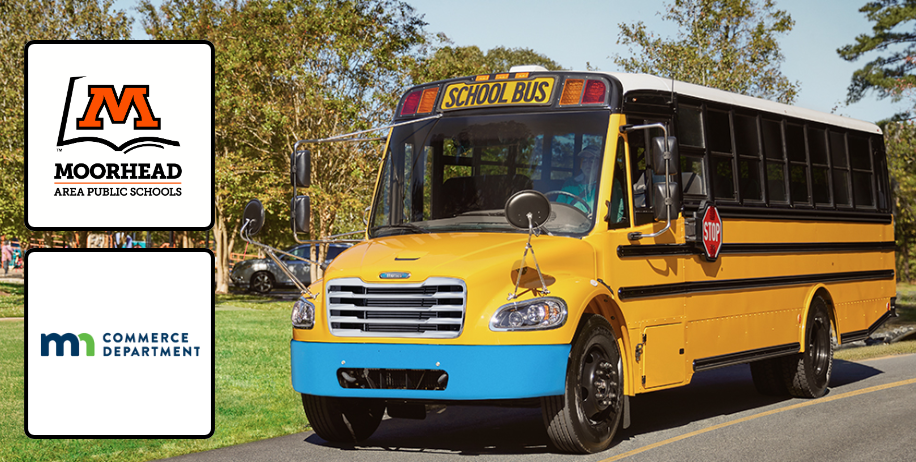Moorhead Area Public Schools (MAPS) is taking a major step toward cleaner, more efficient student transportation while keeping a close eye on cost savings for taxpayers. At its August meeting, the Moorhead School Board approved acceptance of the Minnesota Department of Commerce’s Electric School Bus Equipment Grant, providing $1.2 million to fund three all-electric school buses and the charging infrastructure needed to support them.
“Having the ability to expand our fleet with minimal cost to the district made this particular grant very attractive to us,” said Sean Schneider, MAPS Director of Transportation. “When you add in the savings that each bus will provide in operational and energy expenses, this is a great deal for our district and our taxpayers.”
MAPS is partnering with Highland Transportation to handle procurement, charger installation, operations, maintenance, and monitoring. This partnership ensures no capital outlay by the district for non-grant expenses and provides a fixed, predictable cost of $24,000 per bus per year, fully covered by operational savings. Unlike many federal programs, this state-funded initiative allows districts to add new buses without retiring existing diesel vehicles.
The three new buses are projected to save the district an estimated $150,000 annually through reduced contractor, fuel and maintenance costs. In addition, electric buses provide quieter, cleaner rides that support both student health and sustainability.
MAPS will also collaborate with local fire departments and emergency agencies for safety training, and district drivers will receive specialized training in electric vehicle operation. The buses are expected to launch on three routes beginning in the 2026–27 school year.
While Minnesota winters can affect battery efficiency, MAPS is well positioned for success. Indoor storage at the Operations Center garage will protect batteries from extreme cold, ensuring reliable performance. With routes averaging only 50 miles per day—well within the buses’ winter range of about 100 miles per charge—the district is confident in their effectiveness.
Investing in the Future During Budget Challenges
The addition of electric buses demonstrates MAPS’s commitment to innovation and fiscal responsibility. By leveraging outside funding, the district is stretching taxpayer dollars further, a critical strategy as the district faces ongoing budget constraints. This creative approach underscores the importance of the upcoming operating and capital projects levy, which will allow MAPS to continue providing strong educational opportunities while carefully managing resources. More information about the levy can be found at vote152.org.

